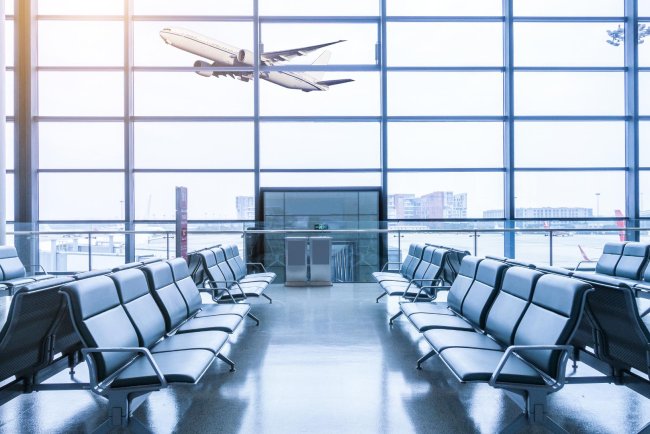1. What is travel insurance and why is it important?
Travel insurance is a type of coverage designed to protect travelers from unexpected events that could occur before or during their trip. It often includes coverage for trip cancellations, medical emergencies, lost or stolen belongings, and travel delays. It's important because it provides financial protection and peace of mind, ensuring that you are covered in case of unforeseen circumstances that could otherwise lead to significant out-of-pocket expenses.
2. How does travel insurance protect me from trip cancellations?
Travel insurance protects you from trip cancellations by reimbursing you for non-refundable costs if you need to cancel your trip due to covered reasons such as illness, a family emergency, or other unforeseen events. This can include costs for flights, accommodations, and prepaid activities, helping to prevent you from losing the entire amount you invested in your trip.
3. What types of medical emergencies are covered by travel insurance?
Travel insurance typically covers a wide range of medical emergencies, including hospitalizations, doctor visits, and emergency medical evacuations. Coverage may also extend to medical treatments, surgeries, and prescription medications needed during your trip. The specifics of coverage can vary by policy, so it’s essential to review the details of your plan.
4. How can travel insurance help if my luggage is lost or stolen?
If your luggage is lost or stolen, travel insurance can provide reimbursement for the value of your personal items. This includes clothing, electronics, and other belongings that are essential for your trip. Some policies also offer coverage for delayed luggage, helping to cover the costs of purchasing essential items until your luggage is returned.
5. What expenses are covered if my travel is delayed or interrupted?
Travel insurance often covers additional expenses incurred due to travel delays or interruptions, such as accommodation, meals, and transportation. This coverage helps to mitigate the financial impact of delays caused by factors like severe weather, strikes, or other disruptions that can affect your travel plans.
6. What is emergency evacuation coverage and when do I need it?
Emergency evacuation coverage provides financial protection if you need to be transported to a safer location or back home due to extreme situations such as political unrest, natural disasters, or severe medical emergencies. It is essential for travelers heading to regions prone to such risks, ensuring that you are not left with exorbitant costs in an emergency situation.
7. Does travel insurance cover rental car issues?
Yes, many travel insurance policies include coverage for rental car issues. This can cover costs related to damage or theft of the rental vehicle. If you encounter problems with your rental car, such as an accident or theft, travel insurance can help you avoid additional charges imposed by the rental company.
8. How does travel insurance assist with 24/7 support services?
Travel insurance often provides access to 24/7 assistance services, which can help you manage emergencies and unexpected situations while traveling. This support can include medical referrals, travel arrangements, and other services to help you resolve issues efficiently and minimize stress.
9. Are there any exclusions or limitations in travel insurance coverage?
Yes, travel insurance policies typically have exclusions and limitations. Common exclusions may include pre-existing medical conditions, certain high-risk activities, and events that occur due to negligence. It's crucial to read the policy terms carefully to understand what is and isn’t covered.
10. How much does travel insurance typically cost?
The cost of travel insurance varies based on several factors, including the length of your trip, your destination, your age, and the level of coverage you choose. On average, travel insurance costs range from 4% to 10% of the total trip cost. Comparing different plans can help you find coverage that fits your budget and needs.
11. Can I purchase travel insurance after booking my trip?
Yes, you can purchase travel insurance after booking your trip, but it's best to do so as soon as possible. Buying insurance early can provide coverage for issues that arise before your trip, such as trip cancellations. Some benefits might not be available if you purchase insurance close to your departure date.
12. What should I look for when choosing a travel insurance policy?
When choosing a travel insurance policy, consider factors such as coverage limits, exclusions, deductibles, and the types of coverage included (e.g., trip cancellation, medical emergencies, lost luggage). It's also important to check the insurer's reputation and customer reviews to ensure reliability and quality of service.
13. How do I file a claim with my travel insurance provider?
To file a claim with your travel insurance provider, you typically need to provide documentation such as receipts, medical records, and proof of loss or damage. Contact your insurer as soon as possible to report the claim and follow their instructions for submitting the necessary paperwork. Keep copies of all documents for your records.
14. Can travel insurance be used for both domestic and international trips?
Yes, travel insurance can be used for both domestic and international trips. However, coverage details may vary depending on your destination and the policy you choose. For international travel, ensure that your policy includes adequate medical coverage and emergency evacuation options.
15. Is travel insurance worth it for a short trip?
Travel insurance can be worth it for both short and long trips. Even on a short trip, unexpected events such as cancellations, medical emergencies, or lost belongings can occur. The cost of travel insurance is relatively low compared to the potential financial impact of these issues, making it a wise investment for any length of trip.
16. What happens if I need to cancel my trip due to a covered reason?
If you need to cancel your trip due to a covered reason, travel insurance can reimburse you for non-refundable expenses such as flights, accommodations, and pre-paid activities. You'll need to provide documentation supporting your reason for cancellation and follow the insurer's claims process to receive reimbursement.
17. Are pre-existing medical conditions covered by travel insurance?
Coverage for pre-existing medical conditions varies by policy. Some travel insurance plans offer coverage for pre-existing conditions if purchased within a specific timeframe after booking your trip. It's essential to check the details of your policy to understand how pre-existing conditions are treated and whether any additional requirements apply.
18. How do travel insurance policies handle high-risk activities?
Travel insurance policies may have specific exclusions or additional requirements for high-risk activities such as extreme sports or adventure travel. If you plan to participate in such activities, look for a policy that includes coverage for them or consider purchasing an add-on for high-risk activities to ensure you are protected.
19. Can I get travel insurance for a group or family trip?
Yes, travel insurance can be purchased for group or family trips. Many insurers offer policies that cover multiple travelers under one plan, often at a discounted rate compared to individual policies. Be sure to check the coverage limits and benefits for each member of the group to ensure adequate protection.
20. How can I compare travel insurance plans effectively?
To compare travel insurance plans effectively, evaluate factors such as coverage types, limits, exclusions, and costs. Use comparison tools and review policy details from multiple insurers to find a plan that best meets your needs. Consider customer reviews and ratings to gauge the reliability of the insurance provider.





















